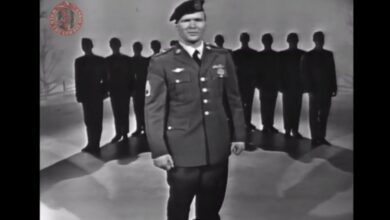I Absolutely Love This Don Williams Song; Did He Realize His Incredible Talent?
Don Williams’ song “Lord, I Hope This Day Is Good” is praised not only for its emotional depth but also as a quintessential example of country music’s tradition of heartfelt storytelling. Released in 1981 on the album *Especially for You*, the track rapidly climbed the charts, achieving an impressive 20-week run at number one in the country music category. This achievement marked a significant milestone in Williams’ illustrious career, being his twelfth chart-topping hit and affirming his role as a foundational figure in the genre. The song exemplifies Williams’ exceptional talent in conveying emotions through music, making it a timeless favorite among diverse audiences.
The lyrics for “Lord, I Hope This Day Is Good” were penned by Dave Hanner, who encapsulated a universal yearning for brighter days. The song acts as a heartfelt prayer for peace and hope, echoing shared human experiences and the desire for calm in life’s turmoil. Williams’ interpretation is characterized by his signature soft vocal style and gentle instrumentation, which elevate straightforward lyrics into a meaningful reflection on the human experience. This unique style earned him the nickname “The Gentle Giant,” highlighting the warmth and sincerity that permeate his music.
Williams’ artistry is noted for its remarkable ability to combine simplicity with emotional resonance. He often opts for minimalist melodies and arrangements, allowing the narratives in his songs to shine, unencumbered by unnecessary frills. This approach not only showcases his storytelling prowess but also enables listeners to connect deeply with the music’s emotional essence. The inviting melodies and relatable themes found in his body of work—including hits like “I Believe in You” and “Good Ole Boys Like Me”—reflect his dedication to crafting songs that touch listeners at a fundamental level.
The heart of “Lord, I Hope This Day Is Good” lies in its relatable message; it provides solace and encouragement for those confronting uncertainty or hardship. Its timeless themes of hope and resilience resonate with listeners through all walks of life. The song’s universal appeal is further evidenced by the many artists who have covered it, including notable renditions by Anne Murray and Lee Ann Womack. Each interpretation brings its own unique flair, highlighting the song’s versatility and lasting relevance in the evolving country music scene.
Born in Floydada, Texas, in 1939, Don Williams began his musical journey in the 1960s as a founding member of the Pozo-Seco Singers. This early experience in music set the stage for a flourishing solo career that gained traction throughout the 1970s and 1980s. Williams’ distinctive baritone voice and laid-back musical style enabled him to connect with audiences on a personal level. His songs are rich in authentic narratives, and his passion for storytelling has endeared him to fans for decades.
Williams is also well-known for his understated performance style, which prioritizes emotional sincerity over flamboyant displays. In an industry often characterized by spectacle, his ability to evoke genuine feelings through a straightforward presentation resonates deeply with many. This commitment to authenticity has fostered a lasting relationship with his audience and has influenced a new generation of artists who seek to replicate his thoughtful approach to songwriting. Many contemporary country musicians acknowledge Williams’ influence on their careers, crediting his work as a fundamental inspiration for their own songwriting efforts.
A key aspect of Williams’ enduring legacy is his exceptional skill in transforming complex emotions into accessible lyrics. He captures the subtleties of everyday life, crafting stories that explore themes of love, loss, and the simple moments that shape our existence. This intimate storytelling is evident throughout his discography, where upbeat tracks contrast with more reflective songs, mirroring the full spectrum of human experience. This harmonious fusion of emotions has enriched his music and enhanced its appeal across various demographics.
In the broader landscape of country music, Williams has received numerous accolades for his contributions to the genre, including an induction into the Country Music Hall of Fame. This recognition underscores his influence, not only as a performer but also as a songwriter whose impact will persist for years to come. His role in shaping the narrative style of country music has left a significant legacy, setting a standard for lyrical integrity that many aspire to achieve.
Listening to “Lord, I Hope This Day Is Good” encourages reflection on the power of music as a form of emotional expression and connection. The song serves as a poignant reminder of the enduring qualities of hope and resilience, motivating listeners to maintain positivity amid life’s challenges. Williams’ legacy in country music transcends mere chart rankings; it encompasses the lasting connections he has created through his art.
In many ways, Don Williams embodies the essence of country music—a genre grounded in storytelling that resonates with the heart. His body of work continues to inspire and uplift, with messages that cross generational divides, proving the timeless nature of his artistry. As fans explore his catalog, they find not just melodies, but a celebration of life’s small joys, reminding them that hope endures even in times of strife. This lasting influence secures Williams’ place among the legends of country music, ensuring that his contributions will be cherished and remembered for generations.





